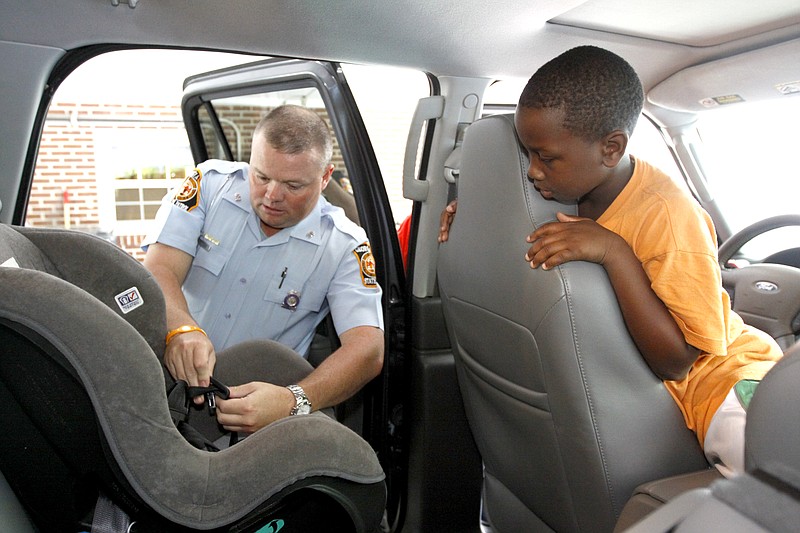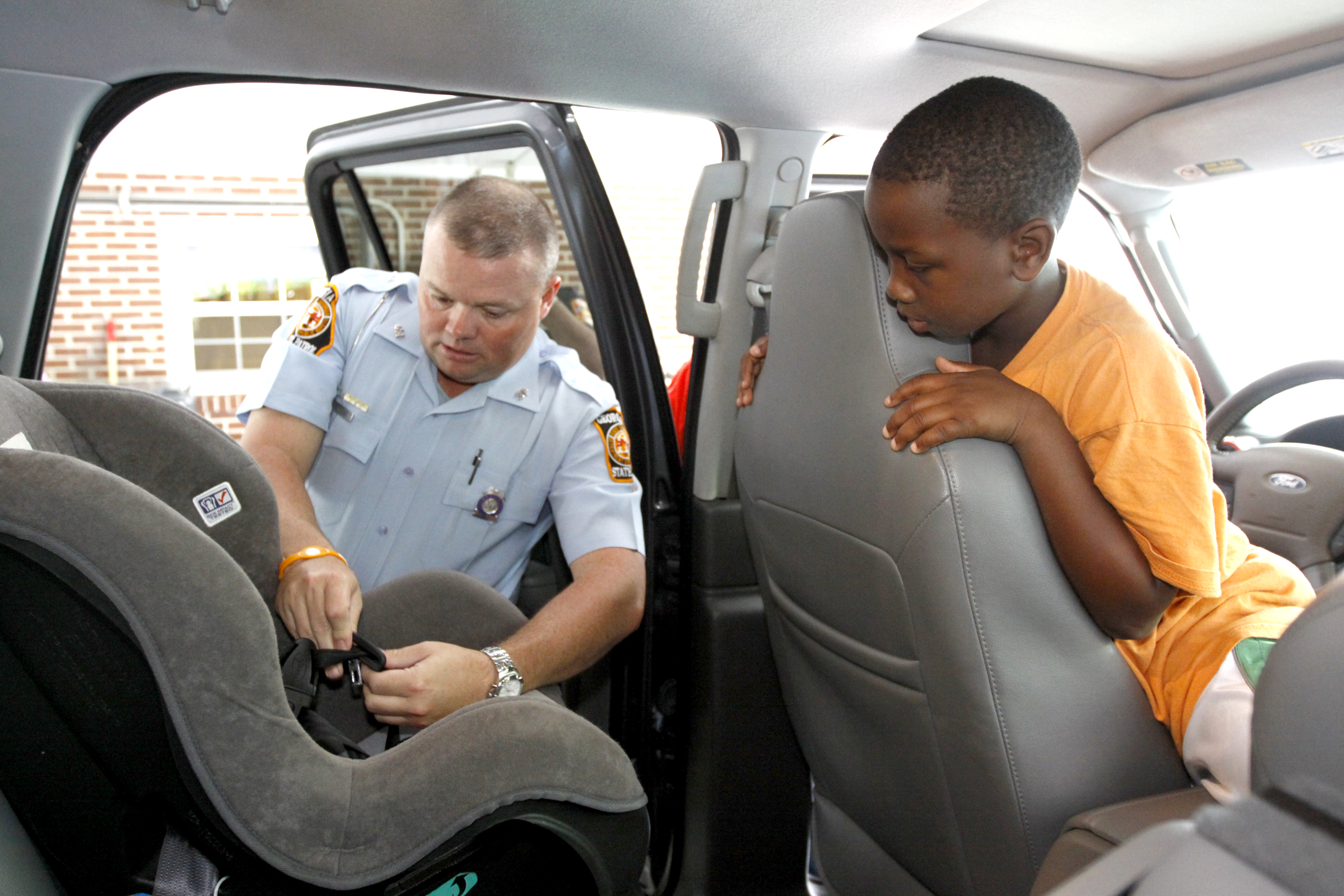Exceptions to the child seat law• Children under 8 who are over 4 feet 9 and weigh 57 pounds• Those with a written statement from a physician that says the child has a medical condition• Those riding in a taxi cab or public transit vehicle
LAFAYETTE, Ga. - Traci Reece has seen her share of close calls involving children in vehicles.
At checkpoints and safety events, the leader of the Safe Kids Walker County Coalition has seen children hanging out of a car seat that's too snug, kids too small being choked by seat straps across their necks and children buckled into car seats that weren't attached properly.
"You realize how much can go wrong," said Reece, whose group is part of a statewide organization that promotes all aspects of child safety.
Most unsafe scenarios with children and car seats could be avoided by education, she said.
At an awareness event at the Georgia State Patrol post in LaFayette, Ga., Thursday, Reece, along with the Georgia State Patrol troopers and Walker County Emergency Services workers, were teaching parents and caretakers about the child safety law that takes effect today.
Children now are required to be in a car booster seat until they are 8 or at least 4 feet 9 and 57 pounds under a law Gov. Nathan Deal signed this year.
The law puts Georgia ahead of many states in child safety laws, said 1st Sgt. Don Stultz, commander of the post in LaFayette.
Only Tennessee and Wyoming have stricter laws, requiring children to be in a restraining seat until 9 or until they reach 4 feet 9.
Before the law changed in Georgia, children had to be in a booster seat until 6.
But the problem officers kept seeing was smaller 6-year-olds who couldn't fit safely in the seat. Often the top strap stopped at their neck or face, which can be dangerous in a crash, Stultz said.
Some of the worst crashes Stultz said he's seen involve a child who wasn't in a car seat or wasn't strapped in properly.
"I don't care how long you've been doing [police work]," he said. "You never forget when a child gets injured."
Law officers said that, for a time, they'll be educating parents and caregivers about the law instead of issuing tickets. But once the grace period is over - there is no set time - the charge will be a misdemeanor with up to a $50 fine for the first stop and up to $100 the second time.
At the event Thursday, officers were checking every child seat when a vehicle drove into the parking lot. A scale and measuring board were set up to check children's height and weight to see what type of seat was needed.
If the child was tall enough, the parents were given a plastic booster seat or an inflatable booster seat. The inflatable seat makes the child tall enough to fit the vehicle's regular seat belts, Reece said.
Several organizations had donated child seats for Safe Kids to pass out, Reece said, but donations were being taken to buy more seats to hand out at future events.
When Kristie Lewis pulled up in her sports utility vehicle, her three children piled out of the car.
When she first heard about the new law, Lewis said she wasn't sure if she would need to buy new seats for her 17-month-old and 3-year-old foster children. Officers gave her new seats and showed her how to operate them.
"We were very relieved," she said.

